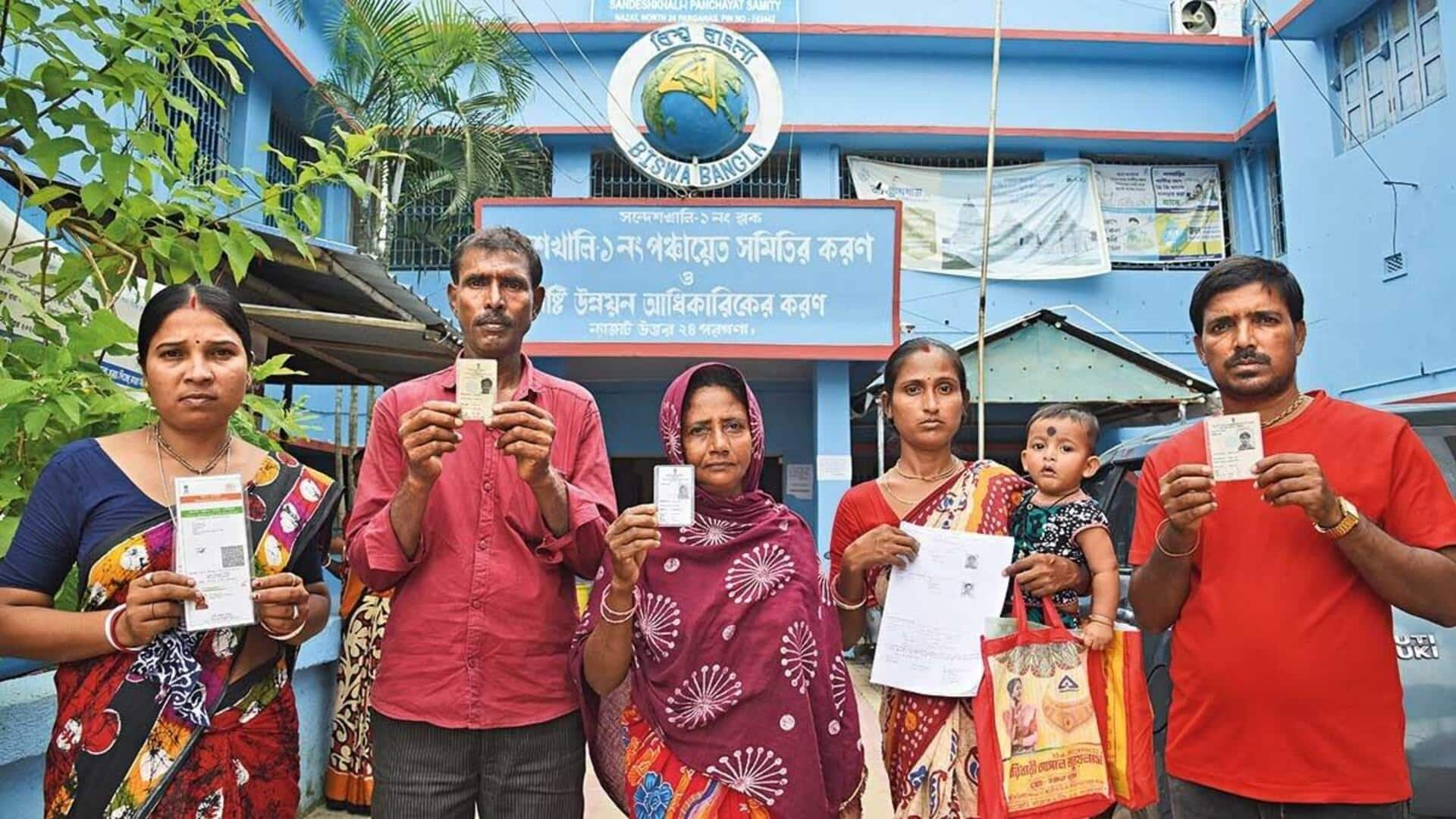
Bengal SIR: ECI finds 14 lakh enumeration forms 'uncollectable'
What's the story
The Election Commission of India has flagged around 14 lakh Special Intensive Revision (SIR) enumeration forms as "uncollectable" in West Bengal. The voters on these forms were either absent, had duplicate entries, were deceased, or had moved permanently. The number of uncollectable forms rose sharply from 10.33 lakh on Monday evening to 13.92 lakh by Tuesday noon, an official was quoted as saying by Livemint.
Team strength
Extensive team deployed for SIR process
The SIR process in West Bengal is being carried out by a large team of officials. Over 80,600 Booth Level Officers (BLOs) are working with roughly 8,000 supervisors and 3,000 Assistant Electoral Registration Officers. The team also includes 294 Electoral Registration Officers who are overseeing the revision of electoral rolls across the state.
Official letter
CM Banerjee criticizes SIR process, seeks intervention
West Bengal Chief Minister Mamata Banerjee has written to Chief Election Commissioner Gyanesh Kumar, criticizing the SIR process as "chaotic, coercive and dangerous." She said she had repeatedly raised concerns about the SIR exercise but now felt "compelled to write" due to its alarming state. Banerjee alleged that the SIR is being conducted in an "unplanned, dangerous" manner and accused the Election Commission of imposing it without proper preparedness or communication.
Urgent action
CM warns of irreversible consequences if issues persist
Banerjee urged the CEC to intervene and stop "coercive" measures, ensure proper training and support, and reassess the current methodology and timelines. She warned that if these issues aren't addressed quickly, they could lead to irreversible consequences for the system, officials, and citizens. In her letter, Banerjee highlighted how booth-level officers are stretched thin as they juggle their primary duties with door-to-door surveys and complex e-submissions.